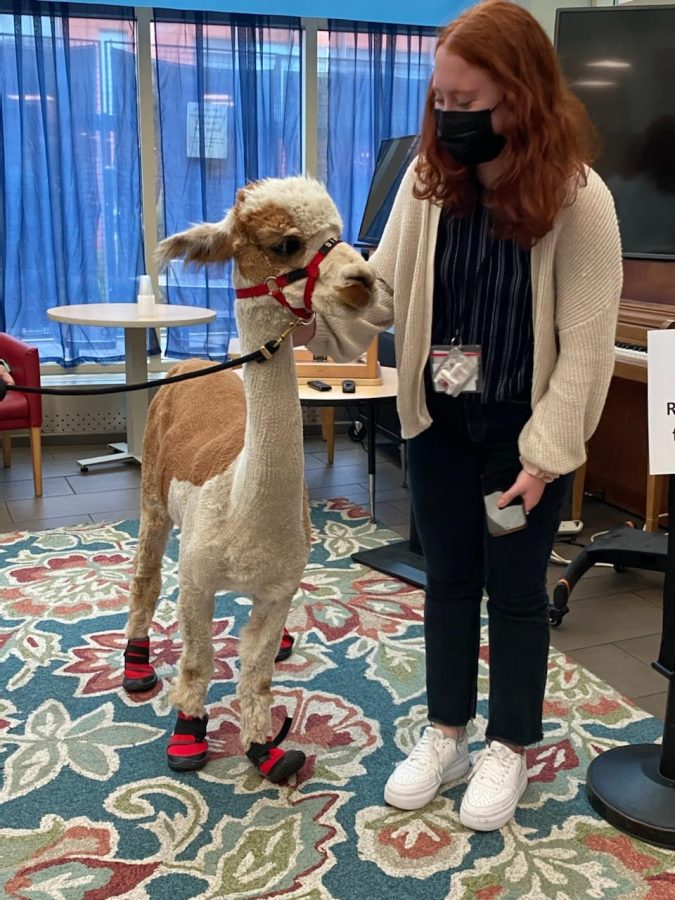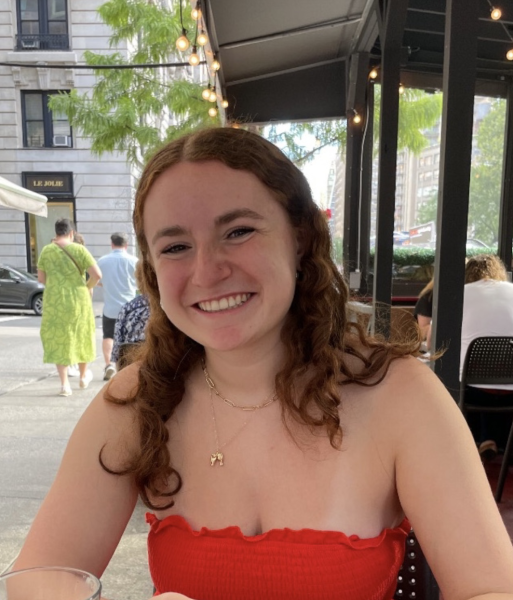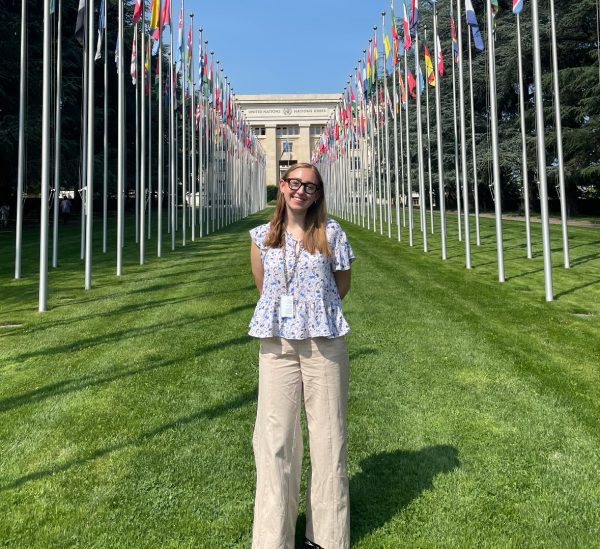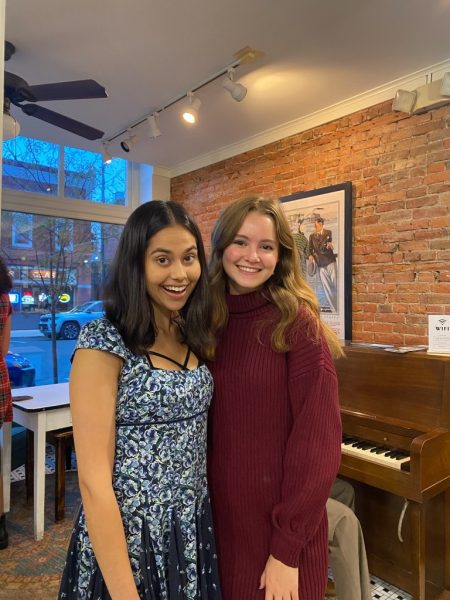Summer Service in Boston
Colgate offers an array of summer funding opportunities created to enhance and enrich students’ summer experiences. One of these is the Manzi Fellowship, established by Jim Manzi ’73 in 1995. Manzi fellows are matched with nonprofit organizations in the greater Boston area, for which they spend the summer working full-time in a community service-related capacity.
The opportunities are split between the healthcare and education sectors. Organizations involved with the fellowship include Boston Health Care for the Homeless, Boston Medical Center, Crossroads MA, Facing History and Ourselves, Heading Home, Hildebrand Family Self-Help Center and Women’s Lunch Place. Based on a fellow’s academic interests and personal strengths, Colgate Career Services pairs them with the best-fitting organization. Around 15 to 20 Colgate students take part in the Manzi Fellowship every year.
Senior Danielle Goldbaum just wrapped up her second summer as a Manzi fellow. As a neuroscience concentrator, she was drawn to the healthcare component of the Manzi Fellowship; she worked as a public health intern in 2021 and as a substance use treatment specialist this summer, matched with Boston Health Care for the Homeless. At Boston Health Care for the Homeless — a service hub committed to providing comprehensive health care for those in need — Goldbaum’s main duties were in the respite unit where she helped coordinate patients’ recovery plans, set up their discharge and maintain relationships with caseworkers and providers.
Goldbaum partly credits the Manzi fellowship with informing her post-college career path and general goals.
“I was always pretty set on going to [medical] school. I’m definitely going to take a gap year or two, and I’m not exactly sure what I’m going to do with that, but over the past two summers, I’ve worked with the homeless population in a clinical setting; now I feel like I wouldn’t want to do anything else,” Goldbaum said. “It’s just so rewarding. You can visibly see the change you’re making in people’s lives. So I know that I want to work with disadvantaged populations in healthcare.”
Goldbaum came away from her summer with much more than professional experience, though.
“I honestly made so many unexpected friends. People certainly have preconceived notions about homeless populations, myself included, because I hadn’t been exposed to this for a lot of my life. I had biases going into the summer that I definitely didn’t come out with. By the time I was leaving, I was crying, and the patients were crying,” Goldbaum recalled.
Junior Noha Shahba worked as a Manzi fellow in the same respite unit and spoke to the uniqueness of both the role and the professional relationships she formed.
“This internship taught me how much I enjoy working with the homeless population, specifically those with substance use disorders. I have bonded with several patients and enjoyed hearing about their success stories and even those who did not succeed because they are still trying to recover.” Shahba said. “It’s really inspiring how strong so many of these patients are. Despite not getting paid, I found myself staying late some days just to chat with patients and hear more about their experiences.”
Junior Catherine Bennett worked at the Boston Medical Center (BMC) which she said proved to be a gratifying experience. Bennett focused on coordinating rides for patients who couldn’t get to their appointments with the help of Uber for Business and social workers at BMC.
“The [neurology] department has one of the highest no-show rates at BMC because of the nature of the patients — many have trouble with movement or memory loss, so they forget about their appointments. There was a list of how often these patients wouldn’t show up, so I’d prioritize those patients,” Bennett explained.
While most of Bennett’s patient interactions took place over the phone, this didn’t mean that they were any less meaningful.
“There was one patient who really stood out to me. When I was on the phone with her, I was helping her through the [Uber] service, and she started crying because she’s been trying to get to her appointment and she had severe pain, so she couldn’t. Just helping someone to their medical appointments, which I hadn’t really needed to think about before, was really rewarding,” Bennett said.
Sophomore Dylan Gutterman also reflected on the in-person aspects of her internship experience as the most impactful parts for her. Gutterman worked with the Hildebrand Family Self-Help Center, which is a service for families experiencing homelessness. She was a Youth Fellow, assigned with coordinating things like summer activities, childcare and school forms.
“A highlight of my experience was actually getting to work with the families. A lot of what I did ended up being behind the scenes — lots of phone calls, contacting people from schools and camps and stuff— but when I actually got to interact with the families, that was a highlight since it was important to see that it was real people I was working with and working for,” Gutterman said. “The whole reason I wanted to do this fellowship is because it relates to my intended career, to practice communicating with people who are facing challenging life circumstances.”
Students can connect with the Manzi program and other similar opportunities through Career Services, located in Benton Hall. Gutterman’s experience was made relatively simple when she connected with staff who got her in touch with Hildebrand.
“I really would recommend [the Manzi Fellowship]. It was a great experience living in Boston and having the housing provided, and the stipend made it a lot easier to go be independent and live in a city and really put myself into this job to help support the non-profit,” Gutterman reflected. “There are many different careers that would benefit from the array of activities that are offered.”
Manzi fellows are paid a stipend for their summer work, in addition to receiving housing in the Boston area. For many students, these benefits wouldn’t be possible without such a program. In a world where it’s tough to get paid during your college years for completing work centered around community service initiatives, the Manzi Fellowship offers an outstanding professional opportunity to students.
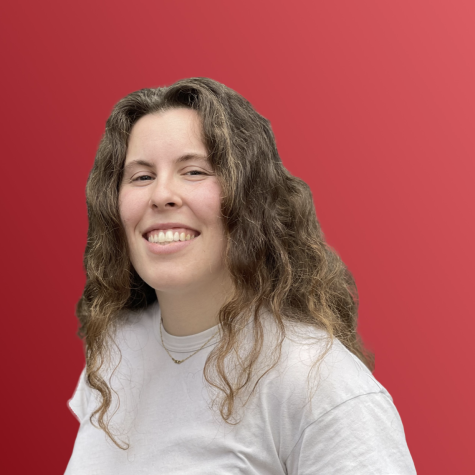
Andie Cook is a senior from Los Angeles, CA concentrating in philosophy and minoring in political science. She has previously worked as an assistant section...


